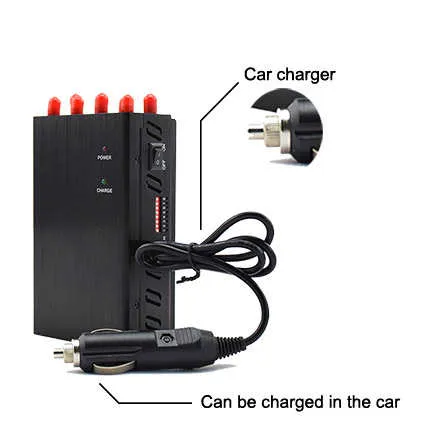Top prosecutors across the country are again calling on Congress to pass legislation that would allow state prisons to interfere with cellphone signals smuggled to inmates. According to lawyers, the devices allow people to plan
violence and commit crimes.
“We simply need Congress to pass legislation giving states the authority to implement cell phone jamming systems to protect prisoners,
guards and the public at large,” 22 prosecutors wrote in a statement. Wednesday's letter to House Speaker Kevin McCarthy and Senate Majority Leader Chuck Schumer.
Wilson's office said it plans to contact Democratic prosecutors and does not believe the matter is partisan.
The letter, obtained by The Associated Press, cites several crimes that lawyers say were orchestrated by inmates using contraband cellphones, including a drug conspiracy in Tennessee and a double murder ordered by an inmate in
Indiana.

They also led a gang siege at a South Carolina prison in 2018 that lasted more than seven hours and left seven inmates dead. One prisoner described the bodies as "literally stacked on top of each other, like a horrible pile of wood."
Corrections officials blamed illegal cellphones for the unfolding violence, the worst prison riot in the United States in 25 years.
“By preventing prisoners from using prohibited cell phones, we can prevent serious drug trafficking, deadly riots and other crimes,” prosecutors wrote.
To render the phones - which are smuggled into hollow footballs, implanted by corrupt employees and sometimes dropped by drones - worthless, prosecutors are asking for changes to a nearly century-old law A historic federal
communications law that currently prohibits state prisons from using signal jamming technology to suppress illegal cellphone signals.
Efforts to crack down on illicit cellphones in state prisons have been going on for years, and South Carolina Corrections Director Bryan Stirling is leading an effort by correctional directors across the country to demand more
technology to combat their use of smuggled phones. the behavior of.
In a progressive victory in 2021, the FCC passed a decision allowing state prison systems to work with cellphone providers to sequentially apply for permission to identify and shut down illegal cellphone signals. South Carolina
was the first state to request the use of the technology, but Sterling told The Associated Press on Tuesday that the state has not yet taken any action on the request.
Sterling said federal prisons can jam cellphone signals behind bars, but that is not currently the case.
CTIA, the wireless industry trade association, opposes interference, saying it could impede legitimate calls. However, CTIA told the commission that it has "successfully worked with its member companies" to "cease service for
prohibited devices under court orders received," according to a 2020 FCC filing.
CTIA and FCC officials did not immediately respond to emails seeking comment on the new wave of subversion.
Congress has previously considered blocking the legislation but has yet to sign any bill or even hold hearings. U.S. Sen. Tom Cotton, R-Ark., reintroduced the measure in the last Congress in August.
"We're not going to stop advocating for this," Wilson told The Associated Press on Tuesday. "I can only hope that at some point Congress will take notice."
